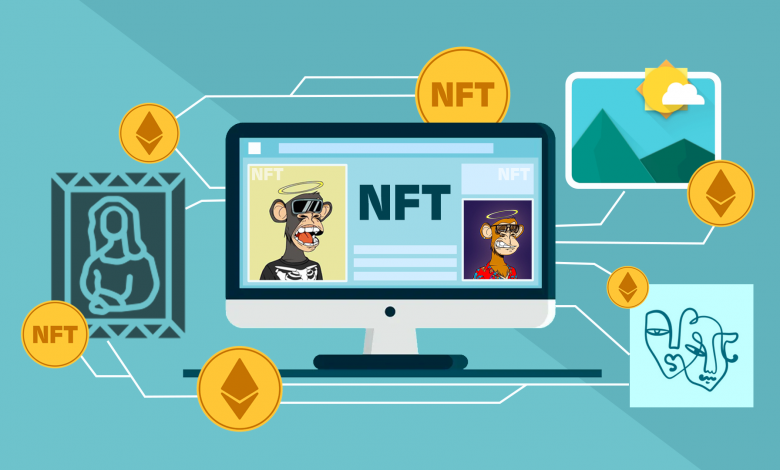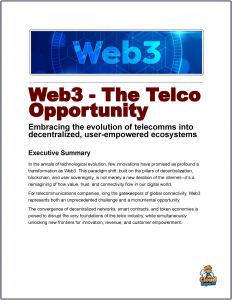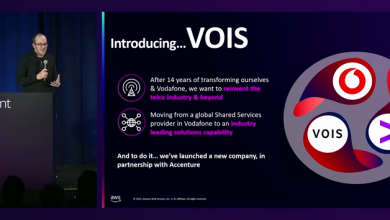The Telco Roadmap to the Web3 Metaverse

 Web3 utilizes blockchain and decentralized technologies to remove intermediaries, enhance security, and enable peer-to-peer commerce, giving rise to a virtual reality space where users can interact with each other and digital assets in a shared environment.
Web3 utilizes blockchain and decentralized technologies to remove intermediaries, enhance security, and enable peer-to-peer commerce, giving rise to a virtual reality space where users can interact with each other and digital assets in a shared environment.
Technologist Yat Siu believes the “open metaverse”, a decentralized version of the internet also known as web3, is laying the foundation for a freer, fairer, more prosperous society.
In this future-focused talk, he explores the transformative possibilities of web3, from enabling digital ownership and the creator economy to providing a much-needed update to capitalism.
Digital Asset Ownership
Digital ownership, a core principle of Web3, seeks to address these issues by leveraging blockchain technology. At its heart, digital ownership means individuals control their data, digital assets, and online identities without intermediaries. Blockchain—a decentralized, transparent ledger—ensures that ownership is verifiable, secure, and permanent.
Non-fungible tokens (NFTs) are a prime example. Unlike traditional digital files, NFTs are unique, blockchain-based assets that prove ownership. An artist can mint an NFT for their work, sell it directly to fans, and retain control over its distribution. Smart contracts embedded in NFTs can even ensure artists earn royalties on future sales, bypassing middlemen like galleries or streaming platforms.
In a blockchain game, assets like characters, weapons, skins, or virtual land can be minted as NFTs. For example, a player might acquire a rare sword in a game like Axie Infinity or a plot of land in The Sandbox. Unlike traditional in-game items, which are controlled by centralized game developers and locked within their ecosystems, NFTs grant players true ownership of digital assets. This ownership is verifiable, permanent, and transferable due to the immutable nature of blockchain records.
The Telco Opportunity
At MWC22 Las Vegas experts gathered to explore the role of Telcos in this future, to share a vision for The Roadmap to the Metaverse Web 3.0, exploring the current landscape, first-mover case studies, the vision and opportunities to capture value. The panel included:
- Richard Cockle, Head of IoT, Identity and Big Data, GSMA.
- Luis Ramirez, Founder and CEO, Mawari.
- Said Bakadir, Senior Director, Product Management XR, Qualcomm.
- Chris Penrose, Global Head Business Development – Telco, Nvidia.
The talk began by highlighting the growing interest and excitement surrounding the concept of the metaverse. It emphasized the need for a clear roadmap to guide the development and adoption of web 3.0 technologies.
The speaker provided a comprehensive definition of the metaverse, describing it as a virtual universe where users can interact with each other and digital objects in real-time. It goes beyond virtual reality and encompasses augmented reality, virtual worlds, and immersive experiences.
Metaverse Billing – Telco BSS as a Marketplace Platform for the Web3 Economy
OSS vendor Optiva, offers a particularly unique perspective on the opportunity and role telcos can play in this Web3 digital asset economy. In this presentation and this article, Chrisaman Sood provides insights into the future of telecommunications and how Web 3.0 technologies can revolutionize the Telco BSS industry.
Chrisaman explains how Telco BSS, which stands for Business Support Systems, plays a crucial role in the telecommunications industry, encompassing various processes such as billing, customer management, and revenue assurance. The presentation highlights how Web 3.0 technologies can enhance these processes and improve overall efficiency.
He identifies a number of critical insights that define the specifics of the role and opportunity for telcos in the Web 3.0 economy:
Metaverse Billing
One of the most essential ways BSS can help monetize metaverse is by providing a smoother billing and payment system and smarter pairing of network assets with metaverse providers who can offer goods and services to their Web 3.0 users.
Metaverse users will require currency to buy virtual goods, pay for virtual services, and even pay for using the metaverse itself. This will be a combination of both cryptocurrency and fiat currency. The next-generation Web 3.0-ready BSS system will be crypto ready and provide a secure and reliable payment gateway that can handle transactions in real-time, providing a seamless user experience.
Creating A Crypto Wallet For Telecom Operators With BSS Support
One area where telecom operators are beginning to engage is creating crypto wallets to enable their customers to store and use cryptocurrencies. It can be a valuable addition to their services, as cryptocurrency use is growing rapidly, and customers are looking for a secure and reliable platform to store and transact their digital assets.
The modernized blockchain-based BSS system can support the creation of a crypto wallet by providing a billing and payment system that allows customers to top-up their wallets using fiat currency. This can be done through a secure payment gateway that ensures the transaction is processed in real-time.
NFT Marketplaces
BSS systems will also play a role in non-fungible token (NFT) space. NFTs are unique digital assets stored on a blockchain and are becoming increasingly popular to represent ownership of digital content such as art, music, videos, and more.
Web 3.0 BSS systems will help monetize NFTs in multiple ways. One is by providing a platform for creators to sell their digital assets to buyers, which is the marketplace model. BSS can offer a secure and reliable payment gateway that can handle transactions in real time, ensuring a seamless user experience for buyers and sellers.



